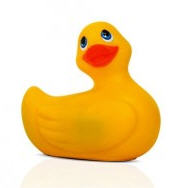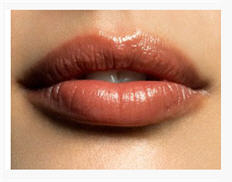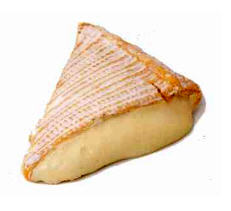No pity for the what? Huh?
So what does that mean?
 Ever page through entertaining English expressions? Or expressions in the language of your choice? It’s great fun! And might we start with the duck?
Ever page through entertaining English expressions? Or expressions in the language of your choice? It’s great fun! And might we start with the duck?
Ne pas casser trois pattes à un canard. That means to be mediocre; to be nothing out of the ordinary, or no big deal. A bit like ça ne casse rien. (In other words, if there were three legs on that duck, it might be something. But there aren’t three legs on the duck, so no big deal.)
As for the limping duck? Pas de pitié pour les canards boiteux – that, more or less, is “too bad for the guys who don’t care to keep up.” It’s not altogether different from Thoreau’s “marching to a different drummer” except that it takes the opposite stance of having little tolerance for those who don’t follow, or who choose not to.
And so?
Language Lessons
Personally, I tend to like those who march to their own tune (like lolling loopy in bed, lazing in linguistic latitude?). As for this morning’s (sc)ramble, perhaps I’m suffering from a lack of multilingual (sc)rabble-rousing and carousing. And thus, my modest offering of expressions in other languages, largely en français, to do with animals.
Ever notice how many expressions have to do with your favorite furry friends? Proud as a peacock, slow as a hare, quiet as a mouse. Or are you already running around today like a chicken with your head cut off?
How about: Quand les poules auront des dents – when chickens will have teeth – in other words – never. A bit like “when pigs fly.”
Expressions, Langues, “du Fun”
And if you’re wondering where you can find these and other expressions? There’s expressio.fr which is particularly fun if you love words because it furnishes similar expressions in other languages. It’s a hoot! And some of the differences between Canadian French and French French are irresistible.
For example:
In Canadian French (Québecois): C’est no big deal. Really! That’s “no big deal.”
In Belgian French: Il n’y a pas de quoi battre un chat (also no big deal, but literally – it’s not worth beating a cat for!).
In German: Damit lockt main keinen Hund hinter dem ofen hervor, or its equivalent in French – Avec cela on n’attire aucun chien derrière la poele (it’s not good enough to attract a dog to the cooking pan (????) – so again, it means “no big deal” and revenons à nos moutons (return to our sheep, or the subject at hand) – ça ne casse pas trois pattes à un canard !!!
But let’s not stay with the ducks and sheep, might we venture to man’s best friend for a moment?
Sex Appeal or Cat House?
Avoir du chien – (literally, to have some dog) is to be attractive, implying sex appeal. Go figure! And yes, this particular expression is generally reserved for use when speaking of a woman. (“Elle a du chien” – she has a lot of charm.)
 And if you really want to confuse things, there’s cette poule a du chien (This chick has plenty of sex appeal – or – this chick has dog), not to be confused with “un chien chaud all-dressed” – Canadian only – for a hot dog with everything!
And if you really want to confuse things, there’s cette poule a du chien (This chick has plenty of sex appeal – or – this chick has dog), not to be confused with “un chien chaud all-dressed” – Canadian only – for a hot dog with everything!
But be careful. In Canadian French most expressions bearing canines are negative. But let’s not neglect our felines, shall we?
Cat got your tongue? In French French, there’s Donner sa langue au chat – but that’s actually to be unable to guess. You would otherwise have to use the expression perdre sa langue – to lose your tongue. And from my (ahem, expansive) research, it appears the French have no corresponding notion of a cat that has nine lives.
And as long as we’re talking tongue, did you know that referring to a French kiss in French, some say it is un Hollywood kiss, others shrug like we (Americans) are crazy to make a distinction (with or without you-know-what), but Canadian French created a verb: Frencher – to French kiss! (Any additional information on the whereabouts of the French kiss in French, gratefully appreciated…)
 So have you noticed that the poor cat catches short shrift in France, in favor of the proverbial poodle?
So have you noticed that the poor cat catches short shrift in France, in favor of the proverbial poodle?
Bovine Sciences? Wolf at the Door?
May I add that when it comes to cows, French is a bountiful language? Dare I take a stab at the reason – all those vaches from which those fine French cheeses are made?
There’s dire des vacheries (to say nasty (cow) things). There’s une peau de vache (cow skin, or a nasty person). And must I really add il pleut comme vache qui pisse? (It’s raining cats and dogs, but… it’s really raining like a peeing cow.) There’s O la vache (oh shit!).
I will leave you with a few lupine laments, as I’m feeling hungry for some bread and cheese with my café:
- Avoir une faim de loup – be ravenous
- Se jeter dans la gueule du loup – to expose yourself to great danger; to fall into a trap
Feeling like you’re keeping dangerous company? Alas – best to keep up. After all, I have no pity for the limping duck.
© D A Wolf
What a fun romp, BLW! Franchement (ou Frenchement?), I had no knowledge of many of these phrases — I’ve enjoyed the lesson.
Frenchement! Parfait, CT!
Rofl – I love it. Especially the one about the peeing cow. There’s actually a similar expression here in the south that my hubby uses all the time, “it’s rainin like a cow pissin on a flat rock.” Crude, but descriptive . . . (and it usually gets a gigglesnort from folks hearing it for the first time.)
Love it, Wendy! (I’d never heard that.)
My command of the French language doesn’t include any idiomatic expressions, it is limited to basic travel parlance and thankfully when it is delivered with a smile, I’ve received free coaching (I didn’t know how to ask for the check on my first trip to France so I asked for what ended up being “newspaper of restaurant, please” (journal de restaurant), smiling he brought me the check and taught me a simple phrase that worked for the rest of the trip (l’edition my spelling may be incorrect?).
I thought you might have tossed in another spicier French idiom, la petite mort, since it is just about a perfect description of its meaning, n’est-ce pas?
L’addition ou la note in French French… but in the great land of Canadian-Speak, um… it beats me!
And as for la petite mort, funny how certain expressions one manages to learn. (A little pillow talk, batticus? Or should I say – oreiller-parlance?)
Batticus, I think it might be l’addition, but pronounced like l’edition, although my French is pretty much a limp duck.
I do like “newspaper of restaurant.” It’s right up there with “the rabbit of Easter.”
Give that man a cigar! Right you are, Wolf. L’addition it is! (Batticus did well with “newspaper of restaurant” – I agree!)
Thanks for the new found knowledge, life is good when you can learn something new! L’addition, s’il vous plaît, I can’t wait to use it someday. And BLW, I had to lookup oreiller, the English translation was perfect with parlance, a very nice turn of phrase.
This made me remember some stormy adolescent fight with my mom where she, in an atypical moment of swearing, called me a son of a bitch. I took a beat, stopped all my defenses and said that she was absolutely right. Seldom have I seen her face cloud so darkly.
The slang about kissing reminded me of a school of philosophy my friends and I invented around that same angsty high school time: pas sur la bouchism. What it lacked in depth it made up for in verisimilitude.
Love it, Bruce!
You astound me with your ability to craft a post, and to keep us thinking and entertained. Bravo. Such fun!
Glad you enjoyed it, Christine! (And “speaking” of Canadian French, dis-moi – tu manges de la poutine?) I’ve never had it, but my kids tell me it’s delicious.